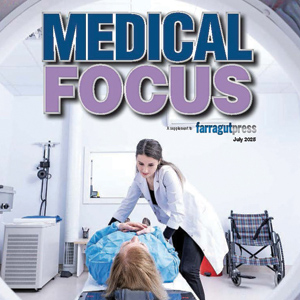Non-fried fish good for your heart: AHA Science Advisory
If you’re a fan of fish, you may be in luck. Eating fish can help lower your risk of cardiovascular disease, according to a new report.
Tennova Healthcare is calling attention to the American Heart Association Science Advisory as a way to encourage East Tennesseans to adopt a heart-healthy diet.
The AHA has long recommended people eat fish — preferably fatty varieties — once or twice a week. The updated advisory, published in the Circulation journal, reaffirms eating fish helps ward off heart disease. Specifically, adults should strive for two 3.5-ounce servings of fish each week, which is more than Americans typically eat.
“The best choices are oily fish with large doses of omega-3 fatty acids,” said Osareme Anthony Irivbogbe, M.D., an interventional cardiologist with East Tennessee Heart Consultants in Knoxville.
“That’s because omega-3 fatty acids found in seafood can decrease the possibility of abnormal heart rhythms and slow the growth of fatty deposits that clog arteries,” he added. “It can also lower high triglyceride levels, which have been associated with diabetes and kidney disease.”
Fish high in omega-3 fatty acids include salmon, albacore tuna, mackerel, lake trout, herring and sardines. Cod, catfish, tilapia, shrimp and oysters also contain omega-3s, but not in as high amounts. The advisory noted fish oil supplements may help prevent death from heart disease in patients with a recent heart attack and may prevent death and hospitalization in patients with heart failure.
“Whatever fish you chose, just don’t fry it,” Irivbogbe said. “Researchers have found that fried foods put you at risk for several health problems —including high blood pressure, high cholesterol, diabetes and obesity — which contribute to heart disease.”


